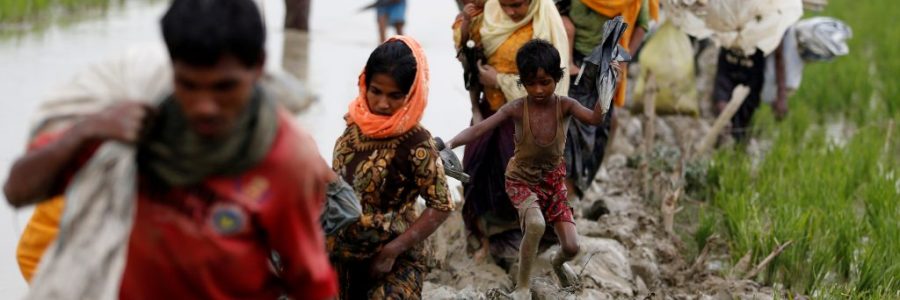Highlights
- With the support of the Rakhine State Government, WFP was able to resume food distributions in central Rakhine State, reaching 73,000 internally displaced and other most vulnerable populations in six townships.
- Humanitarian access to the northern part of Rakhine State was severely affected by the August 25 security incidents and the ensuing violence, leaving an unidentified number of people in need of immediate food assistance.
Operational Updates
- WFP’s distributions to internally displaced persons (IDP) camps in central Rakhine State were halted from 25 August to 11 September due to security concerns among service providers and cooperating partners. On 12 September, following discussions with the Rakhine State Government, WFP was able to resume its operations.
With logistics support from the local authorities, WFP recommenced food distributions for IDPs and other most vulnerable populations in Kyak Taw, Kyauk Phyu, Mrauk U, Myebon, Pauktaw and Sittwe Townships. All the 50,000 people, who missed out on their normal August rations, were prioritized and reached with the September distributions. On 07 October, WFP completed the September food distributions reaching 74,000 out of the targeted 111,000 people in central Rakhine. No distributions took place in Rathedaung Township, which remained out of reach due to access restrictions. - According to the Inter Sector Coordination Group, an estimated 521,000 people reportedly crossed the border from the northern part of Rakhine State of Myanmar, into Bangladesh between 25 August and 08 October.
Humanitarian access remained restricted for WFP and other UN organizations in the northern part of Rakhine, despite residual population was in need of immediate food assistance. The Government indicated its intention to work with the Red Cross movement in its initial response to humanitarian needs. WFP worked with partners to explore the possibilities for collaboration with the Red Cross movement for the crisis response. - In Rakhine State, there were difficulties in distributions of High Energy Biscuits (HEBs) for the school feeding programme due to the ongoing security incidents from late August to September. In Wa Region, time constraints and difficult road conditions during the rainy season resulted in delays in the food distribution to schools.
- In Hakha Township of Chin State, Lashio Township of Shan State, Mong Pauk Township of Wa Special Administrative Division and Pangkham Township of Kokang Self-Administered Zone, WFP completed nine terrace land development projects. The outputs helped create land, increased local food production and household income, improved food security, and mitigated shifting cultivation. In Lashio Township, WFP built seven irrigation canals conveying water for paddy cultivation during both rainy and dry seasons while creating job opportunities during the lean agricultural season. In Chin State, WFP supported road construction and renovation projects to provide better transportation to access social services including market and health care centres, and helped save travel costs.
- Notwithstanding the unidentified needs that persisted in the northern part of Rakhine, WFP’s funding shortfall amounted to USD 8 million to cover all identified food assistance needs of IDPs and other most vulnerable people until December 2017.
- In September, WFP did not reach 251,133 of the targeted people in need of food assistance, largely due to access constraints in the northern part of Rakhine State caused by the recent security incidents.
Read full report here.
Original source: WFP.
Posted on 30 September 2017

